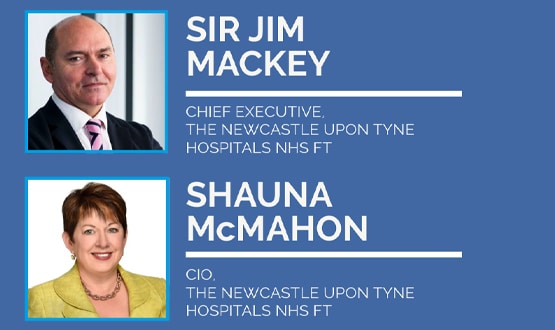NWWM faces £75m potential liabilities on SAS scheme
- 5 May 2005
The NHS faces total potential liabilities of up to £75m in the North West and West Midlands (NWWM) cluster of the NHS if it fails to second key IT staff to the prime IT contractor for the region, CSC Alliance.
Evidence suggests that some trusts are struggling to find secondees and may have to consider employing people specially for the task.
According to documents seen by E-Health Insider, the liabilities relate to a nationally negotiated clause in local service provider (LSP) contracts that requires NHS trusts to transfer key staff to suppliers or pay stiff penalties under a clause known as the Supplier Attachment Scheme (SAS). Across England failure to meet the provisions of the nationally negotiated contractual clause may create total liabilities for the NHS of up to £375m.
In NWWM NHS chief executives have been warned that unless they find staff to second to CSC, "significant penalties" will have to be paid. To avoid this, chief executives have been advised to consider hiring staff specifically to second them into their LSP.
Faced with the potential financial liabilities of the SAS clause local NHS organisations have been advised to consider employing staff specifically to second them directly to the LSP CSC. "In many respects it would be in our interest to employ temporary staff with the relevant experience either to second in directly or to provide cover for staff seconded in," says an email sent to chief executives.
A leaked report from NWWM seen by E-Health Insider makes clear the scale of the potential liabilities NHS organisations have been committed to nationally by the DH and Connecting for Health, formerly the National Programme for IT. "The penalty attributed to non-conformance with this clause is £75m from the NWWM cluster across the lifetime of the contract; which apportions to £1.65m per annum for Greater Manchester," the report to the ICT Board of Greater Manchester SHA states.
Extrapolated across the five clusters of the English NHS IT modernisation programme the Greater Manchester report suggests total liabilities to the NHS could be as high as £375m. NHS Connecting for Health, the agency responsible for negotiating the LSP contracts, declined to respond to questions from EHI on details of the potential liabilities.
In a statement the agency said: "There is a scheme and obligations exist and we have no active disputes with any supplier about this."
Email guidance from an SHA chief information officer to chief executives in the region, seen by EHI, makes clear that the commitments were not locally negotiated. "As you may be aware this was a requirement which emerged from the national negotiations and as such is beyond our control," states the CIO email.
The SAS clause, also known as the Managed Authority Employees clause, was included in each of the five LSP contracts negotiated by NPfIT at the end of 2003 and early 2004.
According to the report the SAS clause was specifically intended to reduce the headline value of the five LSP contracts. "The intent of this clause was to reduce the contract value by £25m and ensure a collaborative approach to the programme," states the report.
A Connecting for Health spokesperson said: "There are advantages to the NHS, not only from price reductions but by ensuring that NHS expertise is readily available to LSPs. It is incorrect and misleading to refer to “penalties” in this context.
An alternative way of viewing the SAS scheme is that it creates an additional implementation cost to NHS organisations and siphons off the key experienced staff with the very skills that trusts will need to successfully implement new systems. EHI understands for instance that CSC is looking for experienced NHS staff to be seconded with direct experience of implementing clinical systems, change management and clinical experience.
Although no penalties have yet been incurred in the NWWM cluster, very few NHS staff have yet been seconded to the LSP. The April report from Greater Manchester states that efforts to identify 11 members of staff to be "part of the contingent from within current NHS staffing" had produced one member of staff potentially willing to consider the positions.
EHI put a series of questions to each of the strategic health authorities in NWWM on how many staff had been seconded in their patch. In West Midlands South and Cheshire and Merseyside none had yet been seconded, Shropshire and Staffs have two members of staff that have been attached, while Cumbria and Lancashire said that that five staff had formally submitted applications and one started with CSC. The other SHAs in the cluster declined to respond by deadline.




